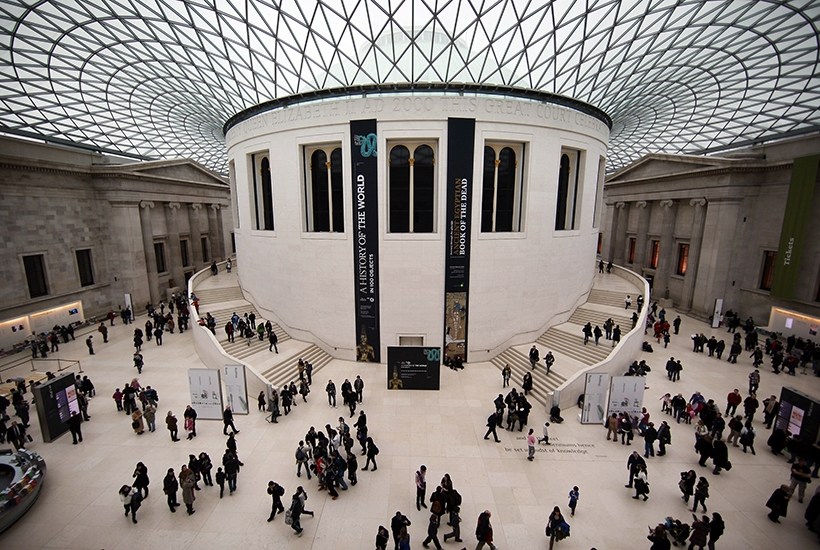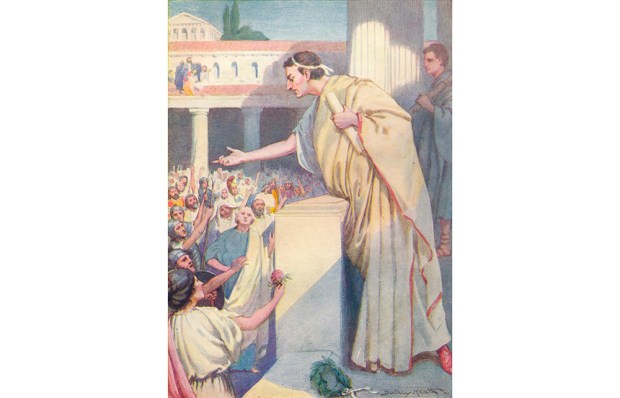The British Museum’s aim is to use its collection ‘for the benefit and education of humanity’. If that manifests itself in jerking the knee to Black Lives Matter’s anti-colonial agenda, the Museum might do well to learn from the ancients.
Near Eastern conquerors used to dedicate their loot in temples, and so exhibit it. It was Nebuchadnezzar II of Babylon (6th C bc) who gathered reliefs, weapons, inscriptions (one going back to 2,400 bc) etc. and placed them in a ‘Wonder Cabinet of Mankind’ for the public to enjoy.
Greeks and Romans took up the idea, filling their temples with collections of relics, statuary and art. The temple of Lindos on Rhodes contained a bracelet of Helen of Troy, Orpheus’s lyre and the weapons of Heracles. Other temples housed Aeneas’s shield, Achilles’s spear, Tantalus’s bones and the head of Medusa. The amusing Herondas (3rd C bc) describes two ladies going round a temple to Asclepius on Cos, exclaiming in astonishment at everything on display.
With Rome’s capture of Syracuse in 211 bc and subsequent conquest of Greece, statues and paintings came flooding into Rome. Soon Romans were adorning their own houses, and the private art collection was invented — artefacts removed from their original context for display elsewhere. Cicero’s letters record his enthusiasm for finding works of art to grace his 12 or so villas around Italy.
But it was the 5th C bc historian Herodotus who really nailed it. Travelling around the Mediterranean and Near East to compile his history of the Persian wars, he was overwhelmed with awe and admiration for what he saw of other peoples, their cultures, customs and artefacts, especially Egypt (‘nowhere are there so many marvellous things, nor more monuments that beggar description’). Indeed, he actually wrote his history to celebrate ‘the great and wonderful achievements of Greeks and non-Greeks alike’.
‘Wonder’ is an attractive element that the British Museum’s well-meaning social, cultural and historical information in the name of education can all too easily elide. Everyone can do with a little wonder in their lives. Bowing to BLM will kill it stone dead.
Got something to add? Join the discussion and comment below.
Get 10 issues for just $10
Subscribe to The Spectator Australia today for the next 10 magazine issues, plus full online access, for just $10.
You might disagree with half of it, but you’ll enjoy reading all of it. Try your first month for free, then just $2 a week for the remainder of your first year.














Comments
Don't miss out
Join the conversation with other Spectator Australia readers. Subscribe to leave a comment.
SUBSCRIBEAlready a subscriber? Log in